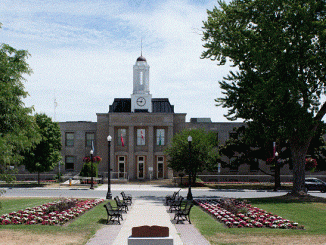
Peterborough Police may finally be getting their long-overdue fix — at a price that makes your eyes water. Nearly $92 million is on the table for a full-scale overhaul: Water Street’s aging headquarters and the Lansdowne Street West site, destined to become a second facility for specialized units and modern operational needs. Decades of deferred maintenance, cramped offices, overflowing evidence storage, and outdated wiring have left the force fighting yesterday’s battles with yesterday’s tools. Add new provincial standards from the Community Safety and Policing Act, and suddenly a $66 million plan feels like a fraction of what’s needed. This isn’t luxury — it’s catching up to reality.
Council has circled like hawks. Every dollar is under scrutiny: which parts are absolutely necessary, which are enhancements, and could a leaner footprint do the trick? In the last vote on the $25.4 million increase to the project, the council split 7–4, revealing clear divisions among members. Skeptics like Alex Bierk, Joy Lachica, and Keith Riel pushed for deferrals and transparency, emphasizing mandatory versus discretionary costs. Expansion supporters, including Mayor Jeff Leal and Gary Baldwin, argued that delay risks regulatory compliance and long-term inefficiency. This mix of cautious pragmatists and growth proponents sets the tone for future budget discussions — a tug-of-war that will play out again when the 2026 Draft Budget lands in November.
Population growth is part of the story. Peterborough’s numbers have climbed from roughly 83,650 in 2021 to 96,058 in 2024, an annual growth rate of about 4.5%. Even that moderate rise drives a disproportionate swell in police demand. In 2024, officers fielded 8,713 criminal calls for service, a 17.8% increase over the previous year. Roughly 82% were non-criminal — traffic stops, wellness checks, the sort of citizen calls that eat up hours without making headlines — and 18% involved criminal activity, from property and violent crimes to drug offenses and public disorder. Downtown alone saw calls jump from 168 in 2022 to 700 in 2024, fueled by open-air drug use and related disturbances. Add provincial mandates for secure holding cells, modern communications, and compliance infrastructure, and the force is squeezed on all sides. Expansion isn’t optional; it’s survival.
A shiny, modern HQ is also a pitch to new recruits. Policing is a competitive field, and leadership argues that if you want to attract and keep officers, you don’t stick them in a building with leaky ceilings and no parking.
The $92 million figure now makes sense when you dig into the numbers. Roughly 50% goes to construction and structural work: shoring up old walls, new HVAC, plumbing, and electrical systems. 20% is earmarked for technology: secure networks, surveillance, and communications. 15% goes to specialized unit space and training areas. 10% is tied up in regulatory compliance and energy-efficiency upgrades, and the remaining 5% covers site work, parking, and contingencies. Every corner has a purpose, every dollar a job, and yet the total still makes a casual reader flinch.
And the plan isn’t just about polishing up Water Street. A second facility on Lansdowne Street West is in the works, designed to house specialized units, training space, and modern evidence storage. It takes pressure off the crumbling downtown HQ and positions the service closer to the city’s growing west end. In short, one station to hold the line, the other to handle the future.
Look around Ontario, and Peterborough’s ask isn’t an outlier. Ottawa’s south facility is hitting $178 million, Sudbury’s proposals brush $170 million, Thunder Bay consolidates for $56 million, and Brantford came in at about $39 million. For a mid-sized city wrestling with decades-old infrastructure, growth, and new policing mandates, $92 million sits squarely in the reality zone.
Police suggest this isn’t about throwing money at bureaucracy. It’s about finally giving officers the space, technology, and resources they need to keep up with a city that won’t stop growing. The council’s split votes show that while opinions on scope and costs vary, everyone agrees the current facilities are insufficient. Long-overdue investment, carefully executed, ensures that Peterborough’s police service can meet contemporary demands without creating unnecessary financial strain, building facilities that will serve the community for decades to come.



